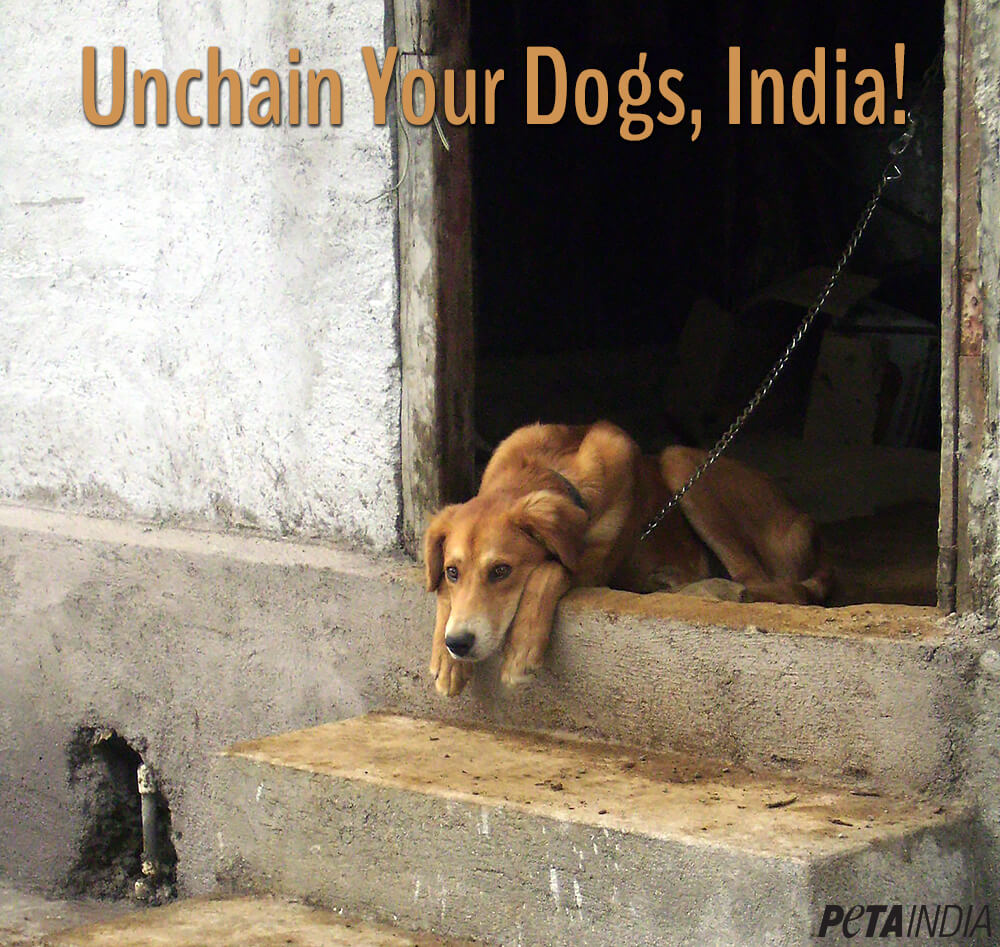Set Dogs Free!
How many of us will notice that some Indians remain in bondage?
Countless dogs live their entire lives – 24 hours a day, seven days a week and 365 days a year – on short ropes or chains. They get food when their “owners” remember to toss it out the back door. They get a drink whenever they manage to avoid tipping over their water bucket (if they even have one). What are their entertainment options? They can count the flies circling their heads, gnaw on rocks or the chains that bind them or watch from a distant corner while their families have fun without them.
Unchain Your Dogs, India!
Like us, dogs are social animals. They crave contact with humans and other dogs and can go insane if they are denied it. If you know of any chained dogs, why not do what you can to make their lives a little better or rescue them from misery? Here are just a few of the ways in which you can help a chained dog:
- Listen for warning signs: “Complain” about barking. Barking dogs are often lonely, neglected dogs.
- Bare necessities: Remind or inform “owners” of chained dogs that dogs need food, water, shelter, exercise and regular trips to the veterinarian and also urge them to unchain their dogs.
- Walk that dog: Offer to take “forgotten” dogs for walks. Stop by for visits, and take along some treats and toys, which can mean the world to a neglected dog.
- Give ’em shelter: Offer to create a shady, sheltered spot if a dog has no protection from direct sun or the rain, and provide straw bedding if the dog doesn’t have a soft area on which to lie or sit.
- Mend fences: Offer to build or repair fences so that dogs can have free run of the garden. Help make the “owner” a guardian: If the “owner” does not know how to care for dogs, help him or her become a responsible guardian by sharing these tips. If the “owner” decides to use a trainer, help to make sure that he or she is professionally certified and uses only rewards, never shouting or physical punishment, to train dogs.
- Know the law: It is illegal to cause any animal to suffer, to confine any animal to a cage so small that it restricts reasonable movement, to keep any animal on an unreasonably short or heavy chain, to neglect to exercise any dog or to fail to provide animals with sufficient food, water and shelter, among other violations. See The Prevention of Cruelty to Animals Act, 1960.
- Report neglect: If the “owner” refuses to treat his or her dog better, ask whether the person would be willing to give the dog up for adoption. If so, work to find a new home for the dog with a trusted friend or family member or seek the help of a local animal-protection group. It’s best to talk to the local group in advance to make sure that it can help. If this approach doesn’t work, file a First Information Report (FIR) with the police. If possible, take photos and write down dates and times when the dog goes without food, water or shelter. The police are required to take your FIR.Work with the local SPCA or animal-protection group if you need further help.
Being stuck outdoors on a chain is like being a prisoner, except that dogs have committed no crimes and probably will never be set free – that is, unless we do something about it.








